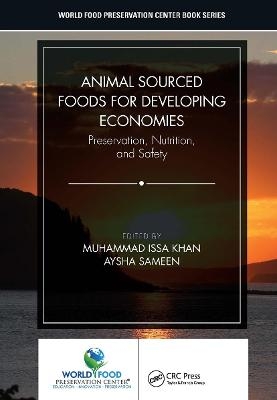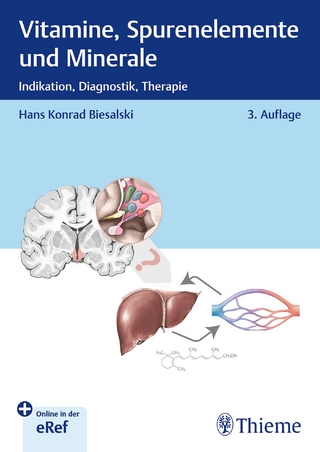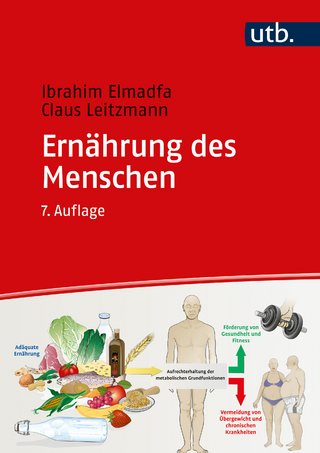
Animal Sourced Foods for Developing Economies
CRC Press (Verlag)
978-1-032-23749-7 (ISBN)
Animal products are good source of disposable income for many small farmers in developing countries. In fact, livestock are often the most important cash crop in many small holder mixed farming systems. Livestock ownership currently supports and sustains the livelihoods of rural poor, who depend partially or fully on livestock for their income and/or subsistence. Human population growth, increasing urbanization and rising incomes are predicted to double the demand for, and production of, livestock products in the developing countries over the next twenty years. The future holds great opportunities for animal production in developing countries.
Animal Sourced Foods for Developing Economies addresses five major issues: 1) Food safety and nutritional status in developing world; 2) the contribution of animal origin foods in human health; 3) Production processes of animal foods along with their preservation strategies; 4) functional outcomes of animal derived foods; and finally, 5) strategies, issues and polices to promote animal origin food consumption.
Animal sourced food contain high biological value protein and important micronutrients required for optimal body functioning but are regarded as sources of fat that contribute to the intake of total and saturated fatty acids in diet. The quality of protein source has a direct influence on protein digestibility, as a greater proportion of higher quality proteins is absorbed and becomes available for bodily functions. Animal foods has high quantity and quality of protein that includes a full complement of the essential amino acids in the right proportion.
Land availability limits the expansion of livestock numbers in extensive production systems in most regions, and the bulk of the increase in livestock production will come from increased productivity through intensification and a wider adoption of existing and new production and marketing technologies. The significant changes in the global consumption and demand for animal source foods, along with increasing pressures on resources, are having some important implications for the principal production systems.
In this book, contributors critically analyze and describe different aspects of animal’s origin foods. Each chapter is dedicated to a specific type of food from animal source, its nutritional significance, preservation techniques, processed products, safety and quality aspects on conceptual framework. Special attention is given to explain current food safety scenario in developing countries and contribution of animal derived food in their dietary intake. Existing challenges regarding production, processing and promotion of animal’s origin foods are also addressed with possible solutions and strengthening approaches.
Muhammad Issa Khan, Aysha Sameen
Contents
Series Preface ...................................................................................................................................vii
Preface...............................................................................................................................................ix
Editors ...............................................................................................................................................xi
Contributors ................................................................................................................................... xiii
Chapter 1 The Role of Food Security and Nutrition to Meet Consumers’ Requirements in
the Developing World ...................................................................................................1
Mohammad Sohaib, Aman Ullah, Ayesha Zafar, and Sana Tahira Saleem
Chapter 2 Contribution of Animal Origin Foods in the Human Diet......................................... 21
Amna Sahar and Ubaid ur Rahman
Chapter 3 Animal Tracing: A Basis for Branding Animal Origin Foods in the Market ............ 43
Bernd Hallier
Chapter 4 Processing, Storage, and Transportation of Milk Products ........................................ 55
Farwa Tariq, Aysha Sameen, Tayyaba Tariq, and Mariam Aizad
Chapter 5 Processing, Storage, and Transportation of Meat and Meat Products .......................77
Rituparna Banerjee, Arun K. Verma, B. M. Naveena, and V. V. Kulkarni
Chapter 6 Biotechnological Approaches for Improving Quality and Safety of Animal
Origin Foods ............................................................................................................ 119
Bushra Ishfaq, Mariam Aizad, and Rizwan Arshad
Chapter 7 Fish Processing, Storage, and Transportation .......................................................... 135
Muhammad Ammar Khan, Huijuan Yang, and Asghar Ali Kamboh
Chapter 8 Animal Origin Foods as Functional Foods .............................................................. 161
Faqir Muhammad Anjum, Fakiha Mehak, and Asna Zahid
Chapter 9 Bioactive Compounds from Animal Origin Foods .................................................. 177
Muhammad Rizwan Tariq
Chapter 10 Bioactive Components from Milk and Milk Products ............................................. 187
Saima Rafiq
Chapter 11 Safety and Quality Aspects of Animal Origin Foods ..............................................207
Tahir Zahoor, Atif Liaqat, and Nehdia Azhar
Chapter 12 Strategies for Improving the Quality of Animal Origin Foods ...............................225
Sana Mehmood, Muhammad Issa Khan, and Hira Shakoor
Chapter 13 Issues and Policies to Promote Animal Origin Food Consumption ........................ 237
Muhammad Issa Khan, Hira Shakoor, and Sana Mehmood
Chapter 14 Animal-Source Foods in Human Nutrition .............................................................. 259
Aamir Shehzad, Asna Zahid, Sana Mehmood, and Sajeela Akram
Chapter 15 Nutritional and Safety Aspects of Animal-Based Irradiated Foods ........................269
Muhammad Yasin, Aurang Zeb, and Ihsan Ullah
Chapter 16 Poultry and Livestock Production for Foods ............................................................289
Shaihid-ur-Rehman and Salim-ur-Rehman
Index ..............................................................................................................................................305
| Erscheinungsdatum | 13.12.2021 |
|---|---|
| Reihe/Serie | World Food Preservation Center Book Series |
| Zusatzinfo | 72 Illustrations, black and white |
| Verlagsort | London |
| Sprache | englisch |
| Maße | 178 x 254 mm |
| Gewicht | 576 g |
| Themenwelt | Medizin / Pharmazie ► Gesundheitsfachberufe ► Diätassistenz / Ernährungsberatung |
| Technik ► Lebensmitteltechnologie | |
| ISBN-10 | 1-032-23749-X / 103223749X |
| ISBN-13 | 978-1-032-23749-7 / 9781032237497 |
| Zustand | Neuware |
| Haben Sie eine Frage zum Produkt? |
aus dem Bereich


